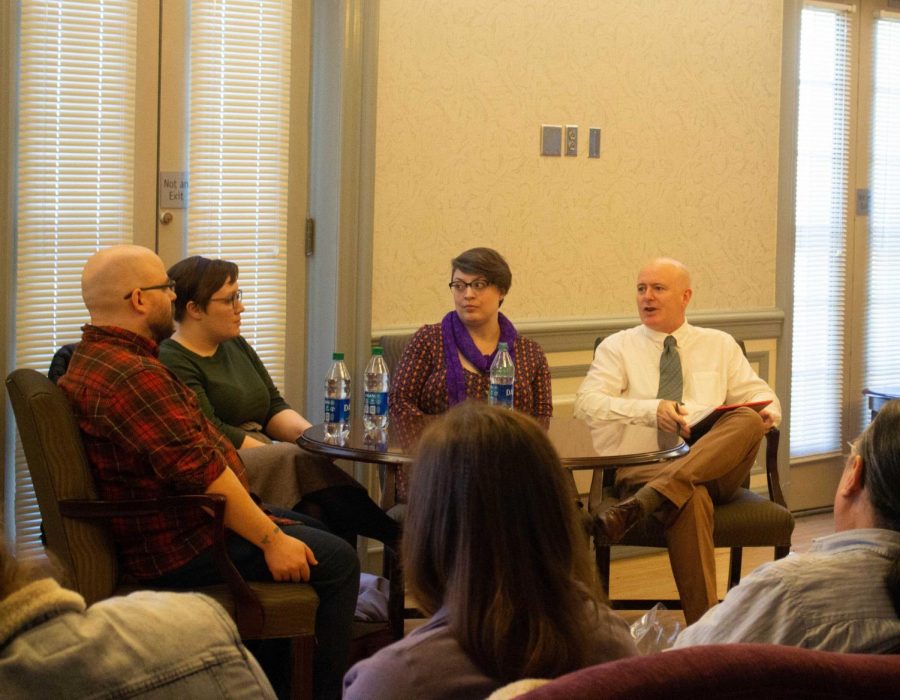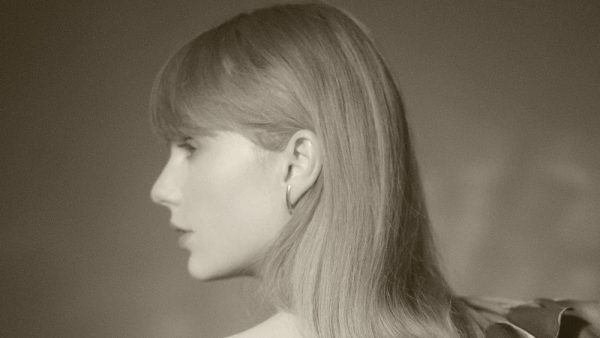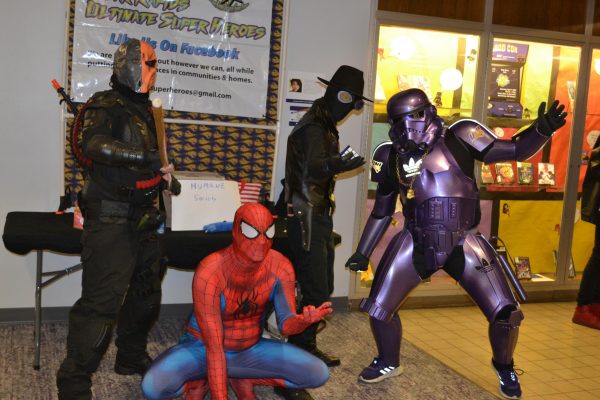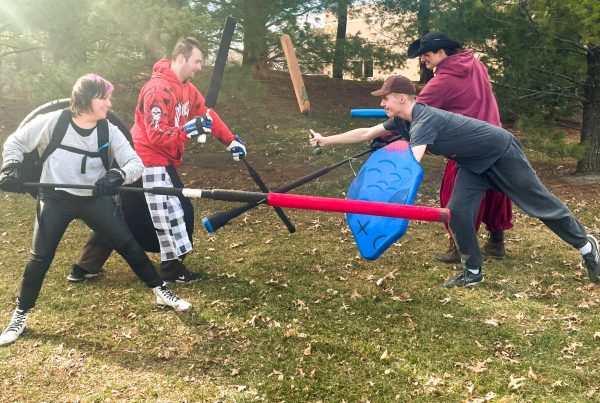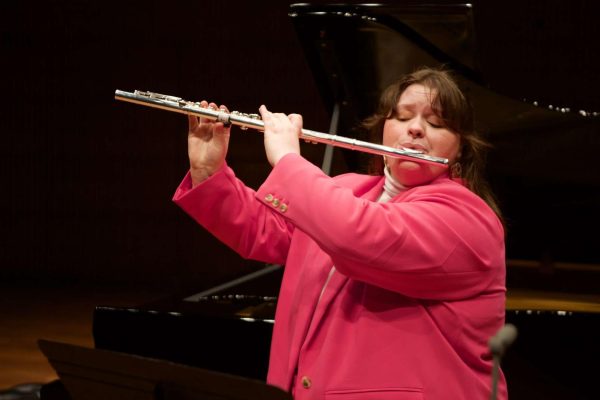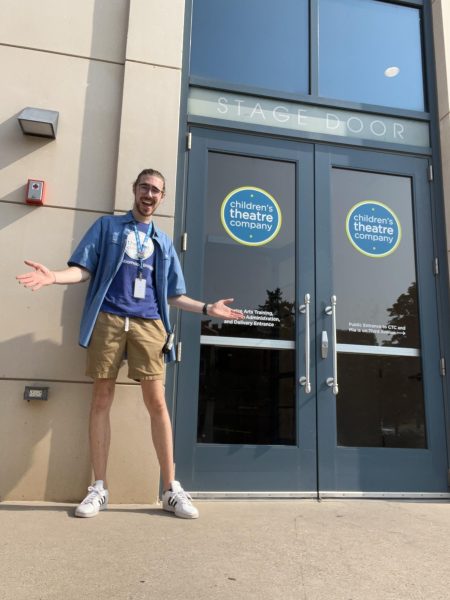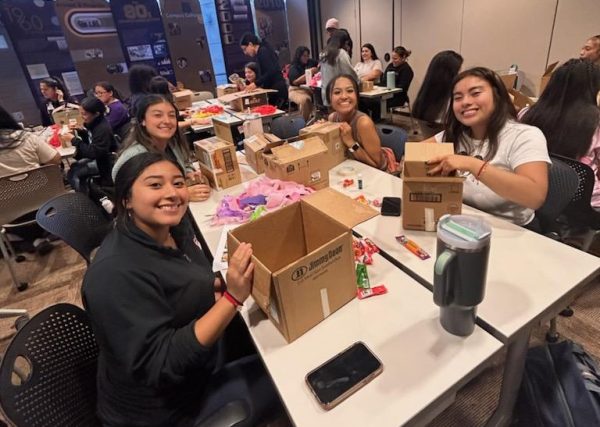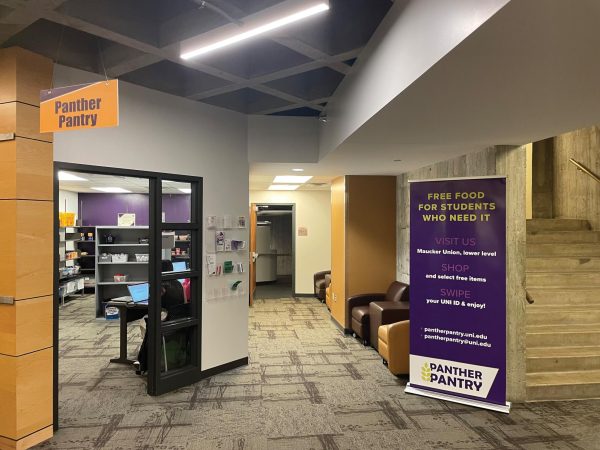UNI English alumni roundtable event discusses library careers
UNI alumni Zach Lowe, Alissa Cornick and Jessica Bamford-Love (L-R) discussed careers in libraries at a roundtable discussion hosted by Professor Jim O’Loughlin (far right) on Friday, March 6.
Mar 9, 2020
On Friday, March 6 at 2 p.m., several UNI English program alumni returned to campus to discuss their work in community and academic libraries. This roundtable event was held in Bartlett Hall 1017 and students considering futures in library science were encouraged to attend. Nearly every seat was occupied for this talk by both students and faculty interested in learning about alumni experiences in librarianship.
The talk featured former students Jessica Bamford-Love, circulation assistant at the Cedar Falls Public Library, Alissa Cornick, youth librarian at the Des Moines Public Library and Zach Lowe, library specialist and circulation lead at the Des Moines Area Community College Ankeny campus. The three were introduced by UNI Professor Jim O’Loughlin, who also helped to facilitate the discussion.
Lowe, Cornick and Bamford-Love spoke from their experiences on a variety of topics in the field of library science, including career and day to day challenges, community impacts and the difference between having or not having a Masters in Library Science.
“I enjoy working with students who are excited to learn and utilize our services,” Lowe said. He noted that a lot of energy is focused on making sure students are aware of library resources, including research databases, ebooks and various streaming services.
To Bamford-Love, engaging with the community is necessary in working at a library. “You need to have a great desire to engage with your community,” she said. Bamford-Love said that one of the best aspects of her job is being able to make a difference in the community. One of the library programs she coordinates is focused specifically on widening the perspective of community members and hearing from underrepresented groups directly. Their cultural literacy program has allowed for individuals who identify as transgender, are DACA recipients and other minority groups to share their stories with the greater Cedar Falls community.
Cornick, a youth services librarian, discussed a new program at her library that attempted to create comfortable and inviting movie experiences for youth who are sensitive to high levels of stimulation.
“Many children on the autistic spectrum experience sensitivity to stimulating and overwhelming environments,” she said. “Our goal is to provide a movie experience which allows for wiggle room, fidgeting, and quiet rooms for youth to decompress.”
Community programming and services are a large part of what both Cornick and Bamford-Love do in their positions, but Lowe says as a community college librarian, a lot of his work is focused on helping assist with research and providing other tools essential to academia.
The three agreed that the difference between having a Master’s in Library Science (MLS) or not having an MLS depends on the environment in which you are working. In small libraries, for example, there is not much of a difference between MLS and non-MLS librarians because in smaller teams, individuals take on a wider variety of tasks. In bigger libraries, positions become more specialized.
However, for Lowe, Cornick and Bamford-Love, not having an MLS hasn’t proven to be much of a barrier to their success. According to Cornick, it really depends on what you want to do as a librarian. MLS librarians usually do more of the managerial and technical work associated with libraries, while specialized librarians can work in anything from circulation to youth programming.
The alumni suggested that the best way to find your path as a librarian is to get involved — either through part-time positions or internships.
“The Iowa library system is very well connected,” Lowe said. He explained that for students entering library science, Iowa libraries provide great opportunities to get references and make connections.


